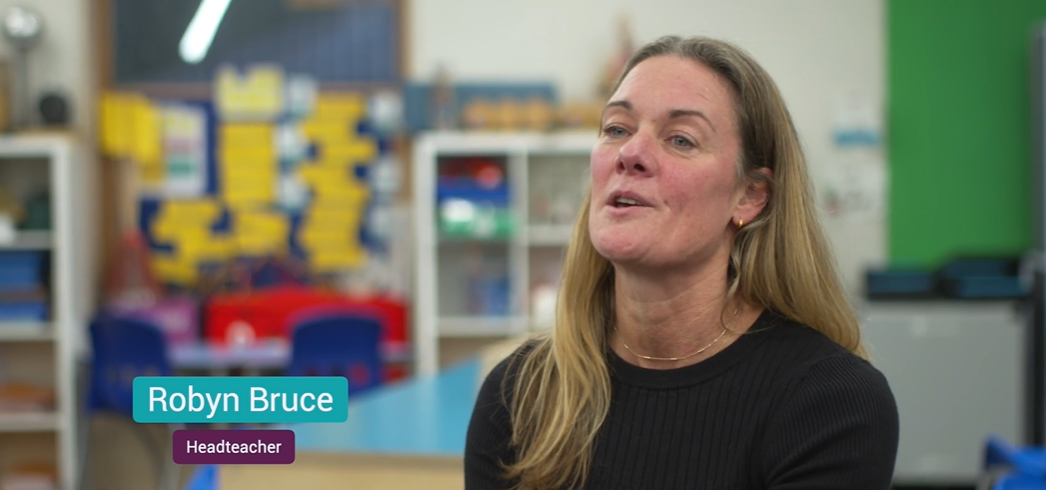Students in Voice 21 Oracy Schools develop the skills they need to feel confident and have faith in themselves
Confidence gives students the means to better navigate the world and ask for what they want. For students, developing confidence helps them better deal with new situations, self-advocate and have faith in themselves. Having the confidence to speak up, build new relationships and be agile communicators, prepares children and young people for success in school life and beyond.
Research also tells us that improving confidence also helps students improve academic attainment, promoted social and emotional wellbeing and reduces overall anxiety.
.png)
Why is student confidence important?
- The Sutton Trust research (2022) has shown that how confidently someone speaks is greater factor in how they are perceived than their accent.
- According to The Skills Imperative 2035, communication and collaboration skills are one of six ‘Essential Employment Skills’
- Teacher confidence matters too and can change quickly, over three years of working with Voice 21, teachers reporting themselves as confident oracy practitioners rising from 40% to 70%
- Voice 21 student oracy surveys show that anxiety and nervousness in relation to speaking increase dramatically in Year 7 and rise steadily throughout secondary school.
- Developing self-confidence supports students navigate, negotiate and be open to being vulnerable which translates to both inside and outside of school.
The confidence to walk on stage and talk starts with a belief that you have something to say
A school that designs a curriculum for oracy is giving students the tools to speak up and listen
By teaching students the oracy skills they need to be compelling speakers in different contexts (rather than simply expecting them to have these), we can better prepare students to speak in front of different audiences and boost their confidence.
We often hear from our Voice 21 Oracy Schools that students feel better able to express themselves which makes then more confident socially and emotionally. This includes being confident in communicating with their peers and making new friends. However, confidence goes beyond the ability to communicate and supports academic performance where students are better able to explore their ideas, learn and grow from 'mistakes' and learn to talk through talk. This shift away from 'quiet classrooms' to a classroom full of ideas and discussion is suporting students achieve academic success.
.png)
Oracy helps reduce anxiety at transition and beyond
There are much higher feelings of anxiety in students that surround the transition from primary to secondary school. New situations and different settings often manifest in fear and anxiety however, by providing students with the skills to communicate feelings on anxiety, we help them be more confident in exploring new environments. Through and oracy-rich education at primary school, students gain the language and communication skills that enable them to feel confident in speaking to new people and excel academically at secondary school.
By teaching students the oracy skills that they need to express themselves and excel in a variety of contexts and situations, we can better prepare students for the move to secondary school, and help them feel more confident as speakers generally.
Self-confidence empowers students with their transitions from primary to secondary.
What are we seeing in Voice 21 Oracy Schools?
At Fairway School, educational outcomes are strong, but there is a desire to build students’ personal confidence as they go out into the wider world. Mindful of this, Emma positions her Year 8 English students as active participants in their study of Romeo and Juliet. Prompted by provocative statements on the board, small groups informally but vigorously debate who was most to blame for the lovers’ deaths. As arguments and disagreements are aired, Emma gradually encourages the students to reach a group consensus, thereby raising the expectation of reasoned, persuasive language. In the subsequent whole-class discussion, Emma calls on specific groups and individuals to make an evidence informed case and to respond to others’ different interpretations. The way that Emma has tuned into the preceding small-group conversations means that she can now target students strategically, validating their ideas and helping them to adapt their register for sharing confidently with this wider audience.
At The Hayfield School, as teachers have become skilled oracy practitioners, they have noticed that students with Special Educational Needs and Disabilities (SEND) are more engaged and participate more in lessons. By teaching and creating space for exploratory talk – discussions about learning across the curriculum – and presentational talk – opportunities for students to speak to an audience, has led to an increase in student confidence – particularly for those who have previously found speaking in class challenging.
"The skillset they were looking for coming into the workplace was that they were about to communicate." - Robyn Bruce, Headteacher
Get support from Voice 21
Voice 21 is the national oracy education and our mission is to transform the learning and life chances of young people through talk.
Becoming a Voice 21 Oracy School gives your school and staff practical tools and resources to plan and develop your oracy practice and improve student confidence and overall wellbeing. We do this through tailored programmes that develop talk in classrooms and beyond, unlimited online CPD and your own School Relationship Officer who will work with you in getting to your school goals.

.png)

-1.png?width=352&name=12%20(2)-1.png)

.png?width=352&name=MH%20Blog%20Header%20Banner%20(1).png)
Leave a Comment